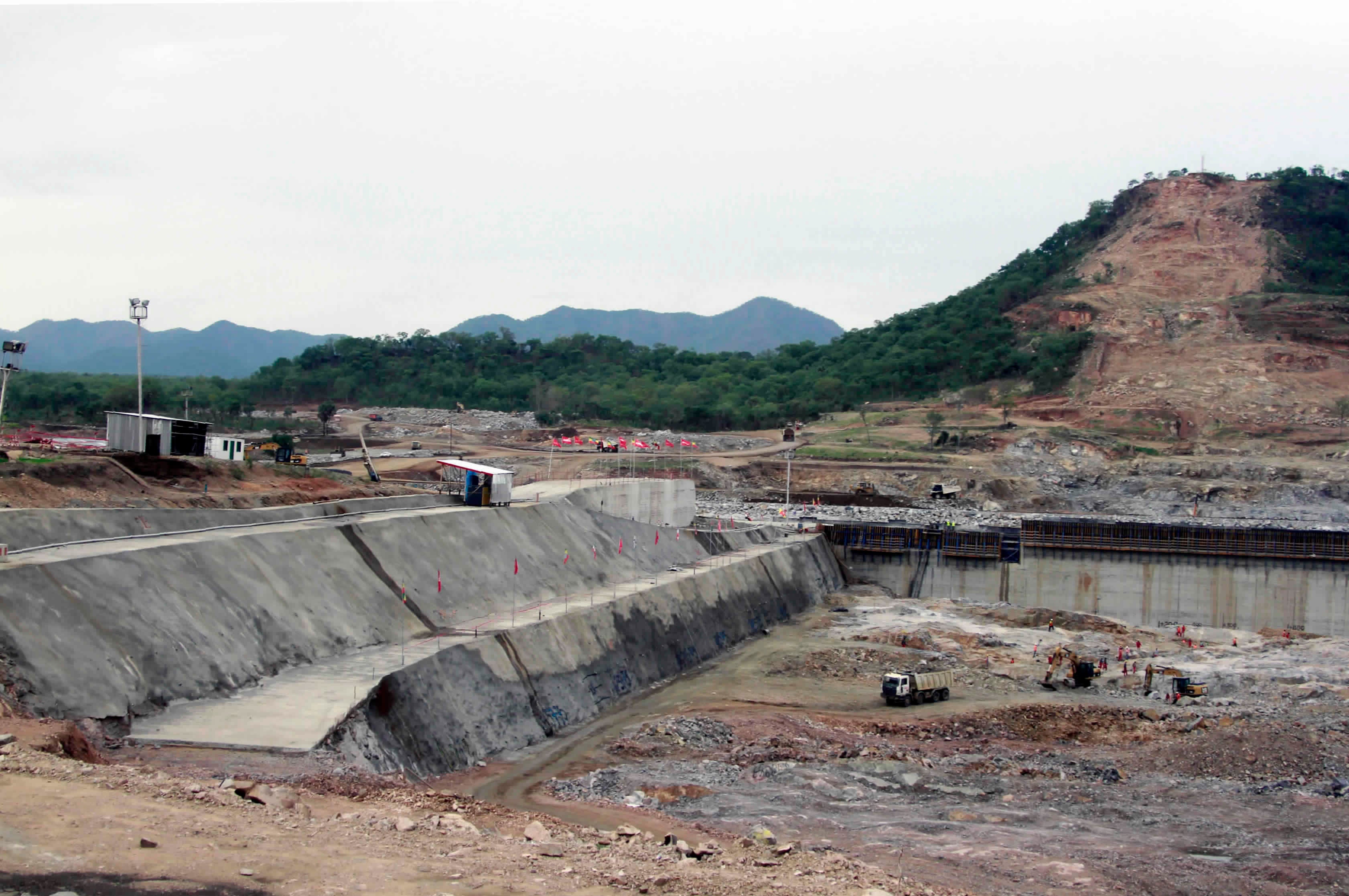Egypt, Ethiopia, Sudan resume talks over disputed dam
Officials say Egypt, Ethiopia and Sudan resumed their years-long negotiations over a controversial dam Ethiopia is building on the Blue Nile

Your support helps us to tell the story
From reproductive rights to climate change to Big Tech, The Independent is on the ground when the story is developing. Whether it's investigating the financials of Elon Musk's pro-Trump PAC or producing our latest documentary, 'The A Word', which shines a light on the American women fighting for reproductive rights, we know how important it is to parse out the facts from the messaging.
At such a critical moment in US history, we need reporters on the ground. Your donation allows us to keep sending journalists to speak to both sides of the story.
The Independent is trusted by Americans across the entire political spectrum. And unlike many other quality news outlets, we choose not to lock Americans out of our reporting and analysis with paywalls. We believe quality journalism should be available to everyone, paid for by those who can afford it.
Your support makes all the difference.Egypt Ethiopia and Sudan resumed their years-long negotiations Sunday over the controversial dam Ethiopia is building on the Blue Nile, officials said.
The resumption came six weeks after Khartoum boycotted talks in November, urging the African Union to play a greater role in reaching a deal over the disputed Grand Ethiopia Renaissance Dam.
The negotiations have centered on the filling and operation of the giant dam. Key questions remain about how much water Ethiopia will release downstream if a multi-year drought occurs and how the three countries will resolve any future disputes. Ethiopia has rejected binding arbitration at the final stage of the project.
The foreign and irrigation ministers of the three Nile Valley countries met online Sunday, said Ahmed Hafez, the spokesman of Egypt’s Foreign Ministry. Sudan also confirmed the meeting.
Ethiopia’s Water and Energy Minister Seleshi Bekele said earlier the meeting was called by South Africa, the current head of the African Union, and that U.S. observers and AU experts would attend.
In November, Sudan did not attend a round of talks called by South Africa, arguing that the current approach to reaching a tripartite agreement on the filling and operation of Ethiopia’s dam had not yielded results.
Sudanese Irrigation Minister Yasser Abbas said at the time that the AU should do more to “facilitate the negotiation and bridge the gap between the three parties.”
Africa’s largest hydroelectric dam has caused severe tensions between the three nations.
Egypt has called it an existential threat and worries that it will reduce the country’s share of Nile waters.
The Arab's world most populous country relies almost entirely on the Nile to supply water for agriculture and its more than 100 million people. About 85% of the river’s flow originates from Ethiopia.
Ethiopia says the $4.6 billion dam will be an engine of development that will pull millions of people out of poverty. Sudan, in the middle, worries about the effects on its own dams, although it stands to benefit from access to cheap electricity.
Subscribe to Independent Premium to bookmark this article
Want to bookmark your favourite articles and stories to read or reference later? Start your Independent Premium subscription today.